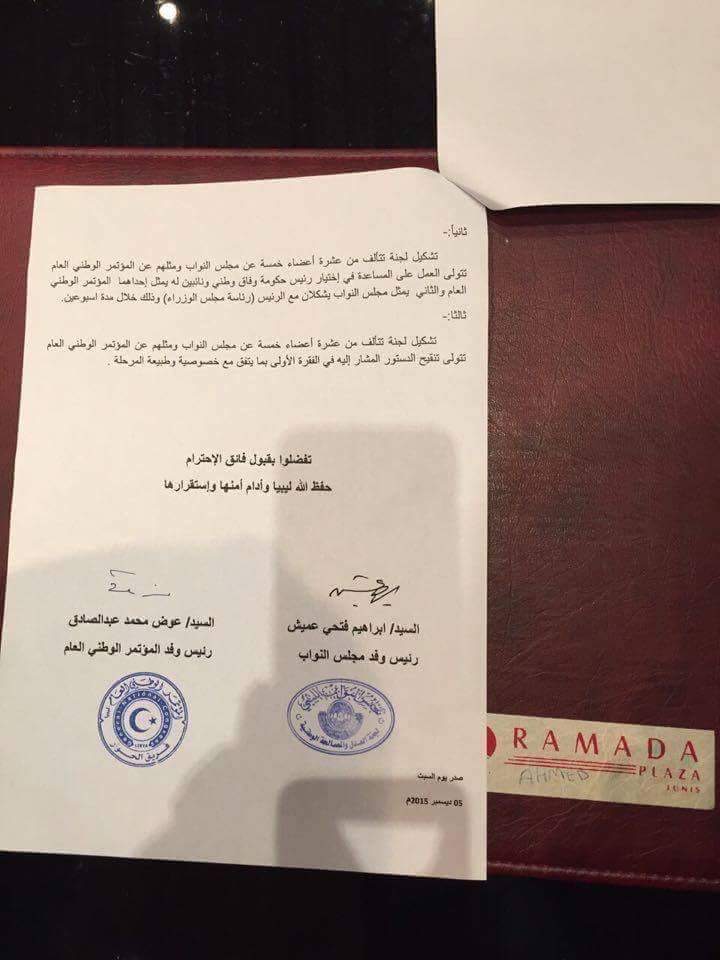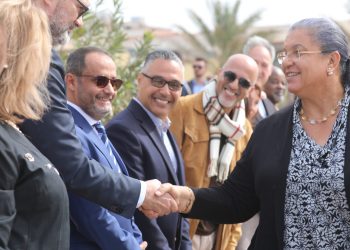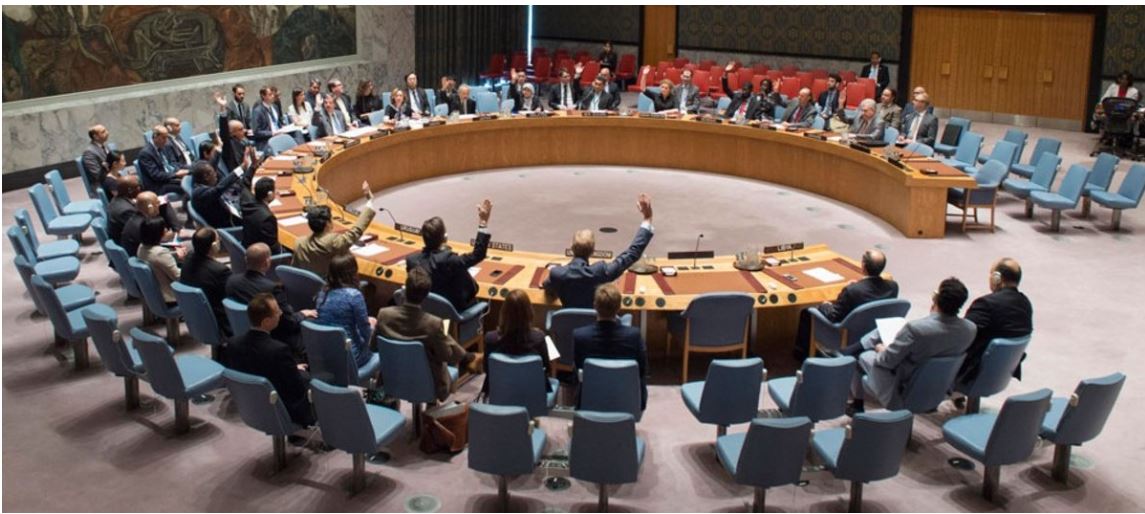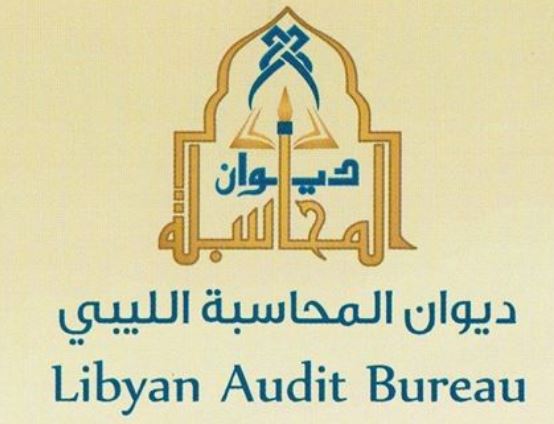By Michel Cousins.
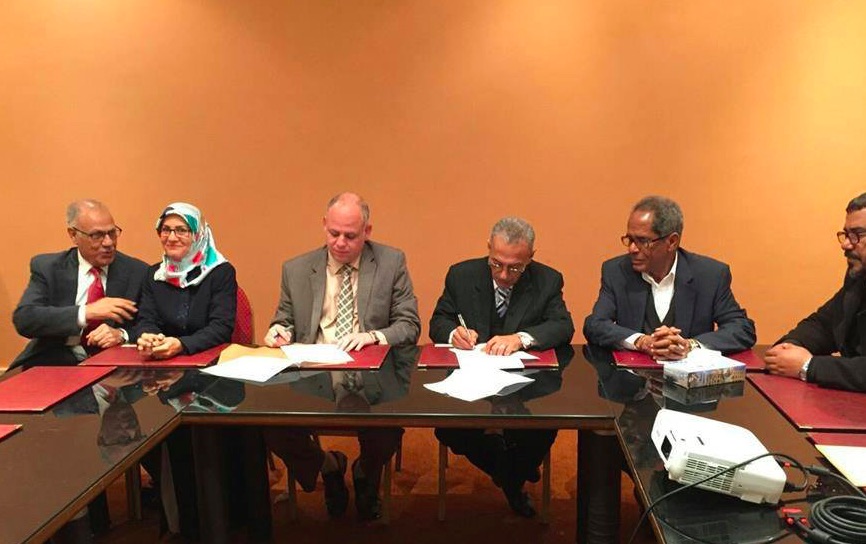
Tunis, 6 December 2015:
The agreement signed by in Tunis last night by delegations from the General National Congress (GNC) . . .[restrict]and the House of Representatives (HoR) has the “complete approval” of GNC president Nuri Abu Sahmain, his deputy Awad Abdul Saddeq told the Libya Herald today. Speaking in Tunis today following a press conference with Ibrahim Amaish, who chairs the HoR’s National Dialogue Committee and who led the HoR delegation to the talks, Abdul Saddeq said that he had just spoken to Abu Sahmain and that he and the GNC fully endorsed the deal.
Under it, five members each from the Tripoli-based GNC and the HoR in Tobruk would form a committee to amend the 1963 constitution and appoint an interim prime minister and two deputy premiers within 20 days of first meeting.
Although Abdul Saddeq said the deal had the support of the GNC, it will still have to be formally approved by both it and the HoR. However, there is already opposition to it in Tobruk.
It has come under fire from a growing number of HoR members. Amaish’s fellow Benghazi members Essam Jihani and Ziyad Daghim have said that he had not been authorised to take part in the Tunis negotiations by the rest of the HoR and that he was acting on his own behalf.
However, an HoR official told this newspaper this evening that Amaish had gone to Tunis with the knowledge and partial approval of HoR president Ageela Salah Gawider. No specific authorisation had been given, the official alleged, but when informed by Ahmaish of the meeting, Ageela Salah had said that if it looked as it might work, he should go ahead.
Reflecting the view that the HoR would reject it, one Libyan official in Benghazi noted that nonethless “it could get backing from eastern federalists in the HoR”. But, he added “the federalists want the 1951 constitution, not the 1963 one”.
The 1963 constitution abolished the federal system and replaced the provinces of Tripolitania, Cyrenaica and Fezzan which had their own administrations with ten administrative areas under single central government.
UN Special Envoy Martin Kobler has also launched a thinly disguised attack on the agreement, saying that the Libya Dialogue agreement brokered by the UN and proposed Government of National Accord (GNA) led by Faiez Serraj was the “only” solution to the country’s crisis.
His attack reflects widespread suspicions within the international community that the Tunis agreement was organised, at least by the GNC leadership, to scupper the GNA and the Libya Dialogue accord.
However, the GNC team at the Tunis talks, which included Said Al-Khattaly from Jadu, Amma Amtair (Sirte) and Omar Buleefa (Misrata) as well as Abdul Saddeq, are convinced that the deal has wider Libyan public support.
Al-Khattaly, viewed as a “moderate” within the GNC, said that he had had “hundreds” of phone calls over the past 24 hours from people delighted with it. “All Libyans are happy with it”, he said, noting that the meeting had been the first formal face-to-face talks between the GNC and HoR.
“We met, shook hands and sat down and talked together, without any help from anyone else,” he said. In contrast, he claimed, at the UN-brokered Libya Dialogue talks, the two sides have been kept apart by former UN envoy Bernardino Leon. (In fact, there were at least two occasions where the two sides sat down together).
Indicating that the GNC would never accept the Libya Dialogue agreement or the Serraj government, Khattaly then launched into a bitter attack on Leon, Kober and the UN. Leon, he said, ought to be put on trial for mishandling the crisis and wasting a year of Libya’s time with the Dialogue. It had been a complete failure, he claimed. Because of it, the UN had to accept responsibility for all the fighting and bloodshed that had occurred in the country during that time. Anger too was directed at Kobler for his meetings in Egypt, the UAE, Qatar, Italy, France and Tunisia in an attempt to get the government there to pressurise the Libyans into accepting the GNA.
“We’re not a colony to be treated like this,” he said. “Yes, we have two governments, but he should talk to them.”
However, despite the HoR and international opposition to the Tunis agreement, the Tunisian authorities at least have given a guarded blessing to it. Both teams were invited to meet the Tunisian president Beji Caid Essebsi this evening. [/restrict]


